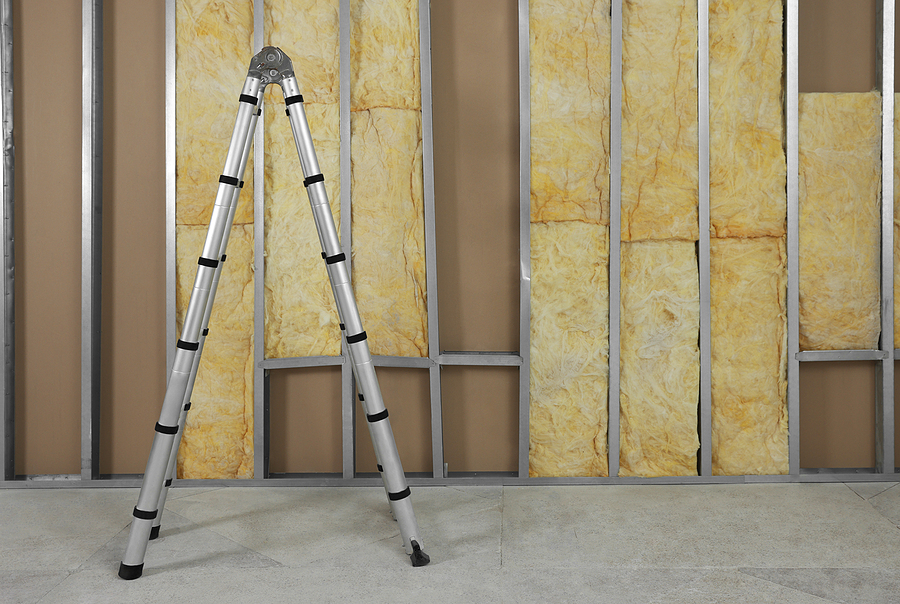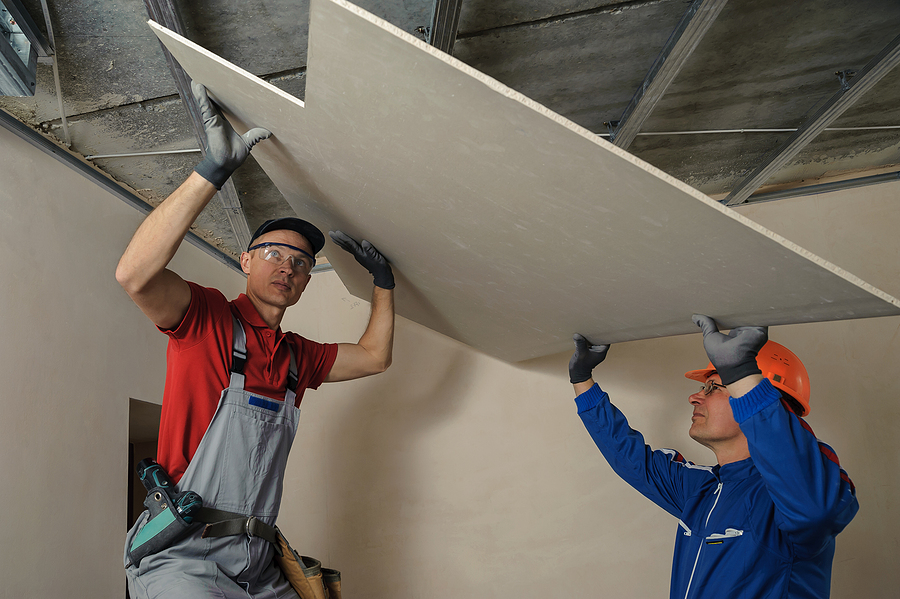If you’re thinking about transforming your basement into a functional living space, basement drywall installation is one of the most critical steps to achieving a polished and professional look. Whether you’re adding a cozy family entertainment area, a guest suite, or a home office, the right drywall can enhance the space’s appearance, comfort, insulation, and safety.
This guide will walk you through the benefits of basement drywall, essential prep work, the installation process, associated costs, and common problems to avoid. By the end, you’ll have the insights you need to decide whether to tackle this project yourself or hire a professional contractor.

The Benefits of Installing Basement Drywall
Drywall isn’t just a surface to decorate; it offers multiple advantages in the context of finishing a basement. Here’s why it’s an excellent choice:
✅ Enhanced Insulation
Drywall with proper backing, such as insulation-backed panels or moisture-resistant boards, helps retain heat in the colder months and keeps the space cool in summer. This improves energy efficiency and reduces utility bills.
✅ Aesthetic Appeal
Drywall provides a clean and smooth surface that can easily be painted or finished to match the interior design of your home. Whether you prefer a minimalist vibe or textured walls, drywall adapts effortlessly to your desired style.
✅ Fire and Moisture Resistance
Modern drywall options include fire-resistant panels that slow the spread of flames, offering enhanced safety. Moisture-resistant drywall is specifically designed to prevent issues like mold growth, which is vital for basements that are prone to dampness.
✅ Soundproofing
Soundproof drywall reduces noise transfer from floors above or neighboring rooms, creating a more tranquil environment in your basement.
✅ Cost-Effective
Compared to alternatives like plaster, drywall is far more affordable. Its ease of installation also reduces labor costs.
How to Prepare Your Basement for Drywall Installation
Proper preparation ensures a smooth installation process and longevity for your drywall project. Here are the key steps:
1. Check for Moisture
Identify and address any existing moisture problems in the basement or sub-level. This might involve waterproofing the walls, adding vapor barriers, or improving ventilation to keep the area dry.
2. Inspect the Foundation
Look for cracks or instability in your foundation, as these issues can lead to drywall cracking or water infiltration later. Repair any damage before proceeding.
3. Plan Utilities
Ensure plumbing, electrical wiring, and insulation are in place before drywall installation begins. Check local building codes to ensure you’re compliant.
4. Get Necessary Permits
Some areas require permits for basement renovation projects, especially those involving major changes like drywall installation. Confirm the regulations in your location to avoid fines or problems down the road.
Learn About Our Basement Drywall Services
Step-by-Step Process for Drywall Installation
Installing drywall is a straightforward process with the right tools. Here’s a breakdown of the steps:
1. Measure and Plan – Measure your basement walls to determine how much drywall you’ll need. Account for windows, doors, and any other obstructions.
2. Choose the Right Drywall – Select a type of drywall that suits your basement needs. Consider options like:
- Standard Drywall for general purposes.
- Moisture-Resistant Drywall for damp conditions.
- Fire-Resistant Drywall for added safety.
- Soundproof Drywall for noise control.
3. Cut and Fit Panels – Cut drywall panels to fit the measured spaces, ensuring precise alignment for a seamless finish.
4. Secure Panels – Attach drywall sheets to the studs using screws, spacing them evenly for firm support. Be sure to use the recommended screws and spacing to prevent future issues like loosening or uneven panels.
5. Tape and Mud – Apply drywall tape along the seams. Use joint compound (mud) to cover the tape, screws, and joints. Smooth the compound for a clean look.
6. Sand and Finish – Once the compound dries, sand the surface to remove imperfections. Afterward, the drywall is ready to be primed and painted.
Factors Affecting Drywall Installation Costs
The cost of your project will depend on several factors, such as:
- Type of Drywall: Specialty drywall, like soundproof or fire-resistant varieties, costs more than standard gypsum boards.
- Square Footage: Larger basements naturally require more materials and labor.
- Prep Work: Fixing moisture issues, foundation problems, or utility installation will increase initial costs.
- Labor: Hiring professional drywall contractors will have a higher upfront cost compared to DIY installation.
- Unexpected Costs: For example, replacing outdated insulation or purchasing new tools for a DIY project can increase expenses unexpectedly.
On average, homeowners can expect to spend $1.50–$3.00 per square foot for standard drywall installation.
DIY vs. Hiring Professional Drywall Contractors
Wondering whether this is a project you can take on yourself? Here’s a guide to help you decide:
Pros of DIY
- Cost savings on labor
- A sense of personal accomplishment
- Flexible timelines
Cons of DIY
- Time-consuming
- Risk of mistakes like incorrect fastening or uneven surfaces
- Requires specialized tools and skills
Pros of Hiring a Pro
- Expertise ensures high-quality results
- Professionals handle challenges like moisture issues or irregular wall shapes
- Saves time
Cons of Hiring a Pro
- Higher upfront costs
- Requires finding a trustworthy contractor
If you choose to hire a professional, look for drywall contractors in Indianapolis with licenses, certifications, and strong reviews. Always ask for a detailed estimate and warranty.
Maintenance Tips for Basement Drywall
To keep your drywall in great condition, follow these maintenance tips:
- Control Humidity: Use a dehumidifier to regulate moisture levels and prevent mold growth.
- Inspect Regularly: Check for cracks, water stains, or drywall bubbling. Address issues promptly.
- Clean Gently: Use a damp cloth to remove dust or smudges. Avoid overly wet cleaning agents.
- Seal Gaps: Ensure all edges and gaps are sealed to maintain insulation and air quality.
Final Thoughts
Installing basement drywall is a worthwhile investment that adds style, comfort, and functionality to your home. From choosing moisture-resistant panels to ensuring you meet local building codes, attention to detail is key to a successful project.
Whether you’re planning a DIY project or looking to hire professional drywall contractors, you’re now equipped with the knowledge to move forward confidently.
When you’re ready to take the next step, contact Drywall By Renso for a seamless drywall installation experience. We’re here to help you bring your basement renovation vision to life!
Related Post: The 8 Basic Phases of a Basement Refinishing Project




